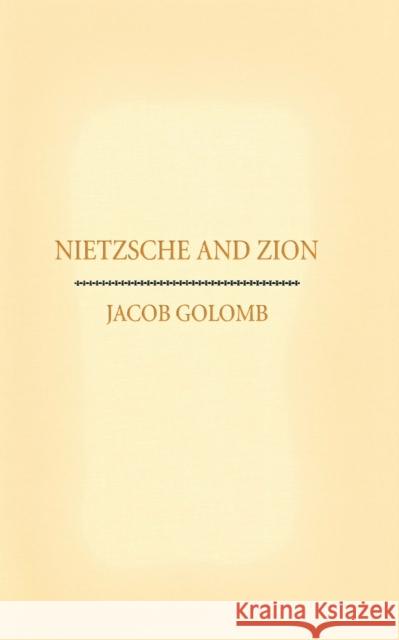Nietzsche and Zion » książka
Nietzsche and Zion
ISBN-13: 9780801437625 / Angielski / Twarda / 2004 / 288 str.
"Nietzsche's ideas were widely disseminated among and appropriated by the first Hebrew Zionist writers and leaders. It seems quite appropriate, then, that the first Zionist Congress was held in Basle, where Nietzsche spent several years as a professor of classical philology. This coincidence gains profound significance when we see Nietzsche's impact on the first Zionist leaders and writers in Europe as well as his presence in Palestine and, later, in the State of Israel." from the IntroductionThe early Zionists were deeply concerned with the authenticity of the modern Jew qua person and with the content and direction of the reawakening Hebrew culture. Nietzsche too was propagating his highest ideal of a personal authenticity. Yet the affinities in their thought, and the formative impact of Nietzsche on the first leaders and writers of the Zionist movement, have attracted very little attention from intellectual historians. Indeed, the antisemitic uses to which Nietzsche's thought was turned after his death have led most commentators to assume the philosopher's antipathy to Jewish aspirations. Jacob Golomb proposes a Nietzsche whose sympathies overturn such preconceptions and details for the first time how Nietzsche's philosophy inspired Zionist leaders, ideologues, and writers to create a modern Hebrew culture. Golomb cites Ahad Ha'am, Micha Josef Berdichevski, Martin Buber, Theodor Herzl, Max Nordau, and Hillel Zeitlin as examples of Zionists who "dared to look into Nietzsche's abyss." This book tells us what they found."











